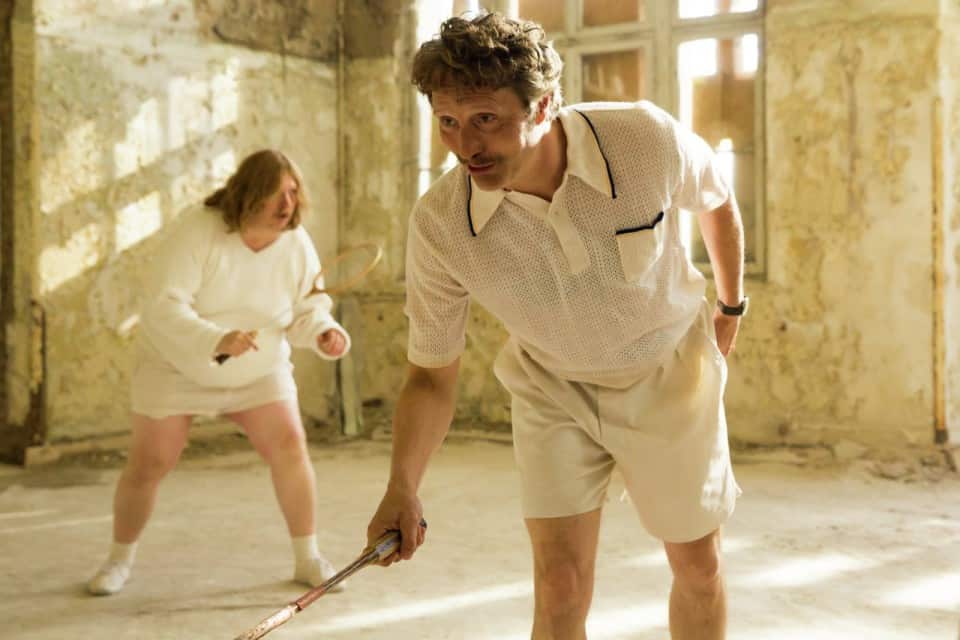In 2012, A.O. Scott published a piece in the New York Times aptly titled “Great Dane.” The article is not, as the title may suggest, a Marmaduke retrospective, nor is it — for the sake of clarity — a puff piece detailing the comedic virtues of Dane Cook. Instead, the column chronicles a brief chitchat between the Times’ stalwart and Mads Mikkelsen, the Danish phenomenon who, at the time of their conversation was on tour promoting Thomas Vinterberg’s drama, The Hunt. Scott concludes the article by saying that “In the Hollywood blockbuster universe, Mikkelsen has become a reliable character actor with an intriguing mug. At home he is something else: a star, an axiom, a face of the resurgent Danish cinema.”
Since then, Mikkelsen’s star has risen, his name has become better known, and his face has become synonymous with evil, due to his stunning three-seasons as Hannibal Lecter in NBC’s Hannibal, and his portrayal of bond villain Le Chiffre in Casino Royale. One look at his filmography, and one would assume that a comedy would be unlikely.
But, that said, Mads Mikkelsen made me laugh — a lot.
Men & Chicken (or Mænd & Høns, in Danish) is a black comedy that’s true absurdity does not derive from the simplicity of its. Directed by Anders Thomas Jensen, and screened as part of TIFF’s edgy and provocative Vanguard program, Men & Chicken is the story of two radically different brothers, the erudite Gabriel (David Dencik) and the erratic Elias (Mads Mikkelsen), who learn at their father’s deathbed that they were adopted, and that their biological father is a famed local geneticist who specialized in stem cell research. The brothers track down their reclusive father, to his dilapidated mansion on the Island of Ork, where they meet and move in with Franz, Josef, and Gregor, three animalistic and feral men who just so happen to be Elias and Gabriel’s half-brothers. Any further plot description — barring a crucial bit of narrative in which the brothers discover a horrible-yet-shockingly-delicious truth about themselves — would spoil the film’s strange beauty.
As is frequently the case with smaller, foreign comedies, everything in this film is given a healthy dose of absurdity. The score is reminiscent of composer Carter Burwell’s A Serious Man compositions and plinks resolutely along. The sound design is off-the-wall creative, altering the metallic squeak of wheelchairs and the rustle of footsteps through leaves so they sound like chicken squawks and clucks. But the real standout is Mikkelsen, who steals every scene he’s in, exhibiting unexpectedly hilarious comedic timing and Michael Richards-esque adeptness for herky-jerky physical comedy. Boasting a preposterous moustache, a crooked beak of a nose, and playing completely against type, Mikkelsen’s graceful yet beastly humour is the hilarious centrepiece of a graceful yet beastly film — and I’ll never watch Hannibal the same way again.


